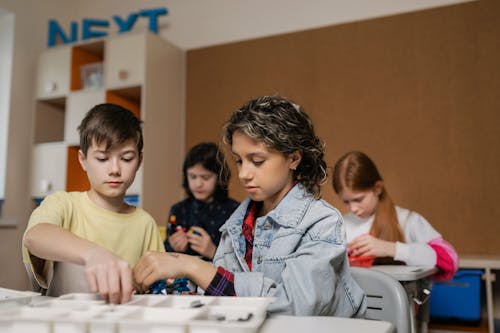Transforming Learning: How Project - based Education Prepares Students for Real-World Challenges
Project-based education has rapidly become a favored approach in modern classrooms. This educational strategy enhances students' real-world problem solving skills, fosters collaboration and encourages creativity. By immersing learners in practical projects, educators can significantly impact their engagement and understanding. Explore how this model not only revolutionizes learning but also bridges the gap between theory and practice, preparing students for future challenges.
Understanding Project - based Education
Project-based education integrates dynamic and engaging learning experiences where students explore and respond to complex questions and challenges. This approach shifts the traditional focus from rote memorization to active learning, emphasizing collaboration, communication, and critical thinking. Through project-based education, students not only acquire knowledge but also develop essential skills for their future careers. As they navigate real-world tasks, learners are encouraged to think creatively and adaptively, preparing them for the unpredictable nature of today’s job market. The educational impact is profound; students often demonstrate greater retention of information, deeper understanding, and improved social skills compared to conventional teaching methods. Project-based education, thus, stands as a pivotal educational model in fostering holistic development in learners.
The Role of Collaboration in Project - based Education
Collaboration is a fundamental component of project-based education. As students work in teams to tackle complex projects, they cultivate a spirit of cooperation and shared responsibility. Such interaction not only enhances their communication skills but also teaches them the value of diverse perspectives. In project-based education settings, students learn to negotiate roles, delegate tasks, and support each other in problem-solving processes. This collaborative environment mirrors real-world workplaces, where teamwork is often essential to success. Furthermore, through engaging in group projects, students develop emotional intelligence and interpersonal skills—qualities increasingly sought after by employers. In essence, project-based education equips students with both the academic and social tools necessary for thriving in collaborative environments.
Real-World Applications of Project - based Education
One of the most compelling aspects of project-based education is its application to real-world contexts. By grounding assignments in practical scenarios, educators can help students make tangible connections between academic concepts and everyday life. For instance, projects may involve community service, environmental conservation, or business simulations, which challenge students to use their knowledge in valuable ways. Such experiences not only enhance engagement but also foster a sense of empowerment, as learners witness the impact of their work. Moreover, project-based education encourages interdisciplinary learning, where students draw on knowledge from various subjects to solve multifaceted problems. This holistic approach prepares students for diverse career paths in an increasingly complex world. Importantly, it instills a sense of civic responsibility and a desire to contribute positively to society.
Challenges and Solutions in Implementing Project - based Education
Despite its numerous advantages, implementing project-based education can present challenges. Educators may struggle with curriculum constraints, assessment issues, or lack of resources. However, many schools have developed innovative strategies to overcome these hurdles. For example, integrating technology can enhance project management and research capabilities, allowing students to access a wealth of information and collaborate seamlessly with peers. Additionally, professional development for teachers is crucial. Training can equip educators with the necessary tools and techniques to effectively facilitate project-based learning. By addressing these challenges head-on, schools can unleash the full potential of project-based education, creating enriching environments that support both student growth and academic achievement.
Assessing Learning Outcomes in Project - based Education
Assessing the outcomes of project-based education requires a shift from traditional exams to more comprehensive evaluations. Rubrics that focus on skills such as creativity, collaboration, and critical thinking provide a clearer picture of a student’s abilities. Self-reflection and peer assessments can also enhance the evaluation process, encouraging students to think critically about their contributions and learning. Furthermore, showcasing student projects to parents and the community fosters a sense of pride and accountability among learners. By demonstrating their work openly, students gain confidence and reinforce their commitment to their educational journey. Ultimately, effective assessment in project-based education supports student development and helps educators refine their teaching strategies.
The Future of Project - based Education
Looking ahead, project-based education will likely continue to evolve alongside technological advancements and changing societal needs. As educators integrate new tools and approaches, the flexibility of project-based education makes it well-suited to adapt to future demands. The COVID-19 pandemic, for instance, has accelerated the shift towards online learning environments, prompting educators to rethink project implementation in virtual spaces. This adaptability opens up new avenues for creativity and collaboration, potentially reaching wider audiences and incorporating more diverse cultural perspectives. As a transformative educational model, project-based education is poised to redefine learning experiences, preparing students not only to meet but to exceed the challenges of the future.
